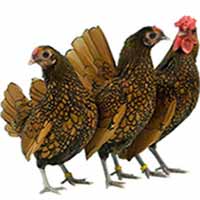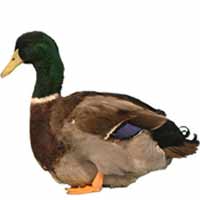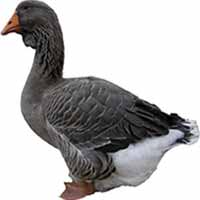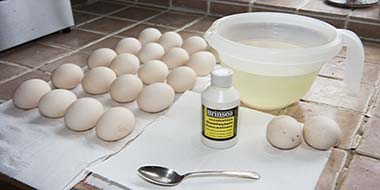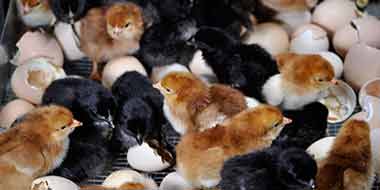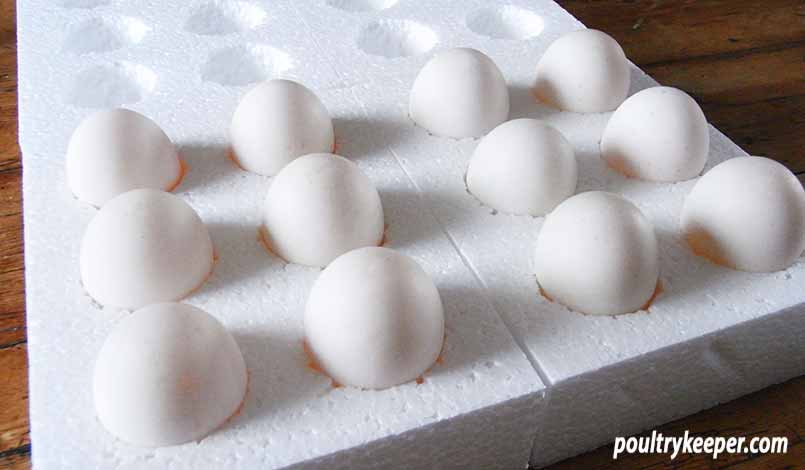
If you’ve got a surplus of hatching eggs from your flock, then you might fancy generating a little income for the ‘feed fund’. Here are some best-practice guidelines on how to sell hatching eggs and some ideas on the best places to advertise and sell them
There are no standards for selling hatching eggs. Unfortunately, there are a lot of people selling sub-standard eggs online, particularly on auction websites. These eggs are not of sufficient quality for hatching, are sometimes not even fertile, or are poorly packed and are no longer viable, even broken after the handling they get travelling through the postal system.
There are also genuine people out there, and I imagine that you are one of those people who would like to know how to sell hatching eggs successfully and stand out from these ‘sub-standard’ sellers if you are reading this. If you build up a good reputation, you will receive a fair price for your eggs and have no shortage of requests for your eggs.
How much can you make?
If you are considering selling hatching eggs, it does have some ups and downs, but it can be profitable. One fancier I met was making £8000 selling his hatching eggs. Not bad for a seasonal job.
Typically, for good quality fertile eggs, you should be able to charge between £1.50 and £2 per egg for most breeds. Some breeds are in greater demand than others, so what you can charge will vary.
Although this seems like a high price per egg, when you consider the work involved in getting and keeping your flock over the year, it’s a fair and reasonable price.
Best practice for sellers
I have gathered some best-practice recommendations for sellers that you can follow. These will help your buyers get the best results and you to get the best reputation as a seller:
- Your stock should be free of disease and in good health before you sell hatching eggs.
- Eggs should be the correct size and weight for the breed. Young birds will lay smaller eggs that aren’t suitable to incubate. Large eggs often don’t hatch.
- Keep nest boxes clean to avoid bacterial contamination. Waterfowl will usually lay on the floor, so keep bedding fresh and collect their eggs first thing in the morning as you let them out. Most waterfowl will lay their eggs before 8 am.
- Eggs should be collected regularly as soon as possible after laying to stop the incubation process from starting during warm weather.
- Store eggs in a cool place. One of the biggest failures of hatching eggs is when they are at room temperature for too long. The embryo starts to develop and will die before the eggs are ready to be incubated or shortly into incubation. There is advice on storing hatching eggs here, which becomes much more critical after a couple of days.
- If posting your eggs 1st Class, obtain proof of postage so that you can prove eggs were posted in the event of a dispute.
- Notify your buyer when you dispatch your eggs so they can be prepared to take delivery.
Washing eggs
There is an argument for and against washing eggs.
Dirty eggs can carry bacteria that multiply rapidly at incubation temperatures. Still, washing eggs removes the cuticle/coating that protects the egg by stopping bacteria from entering through the porous eggshell in the first place!
I’ve had good and bad results in both ways. I tend to wash waterfowl eggs before incubation because sometimes my ducks think it’s better to lay their eggs in the mud under a bush!
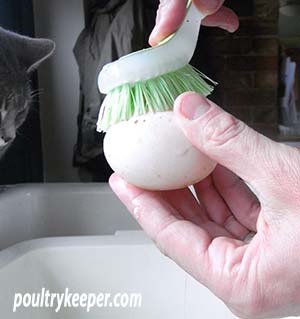
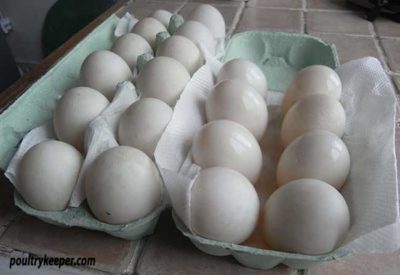
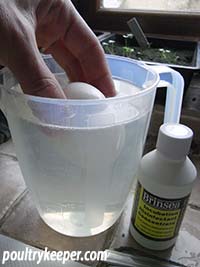
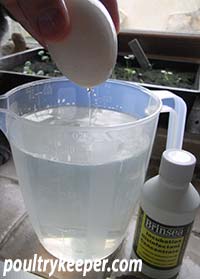
While washed eggs look better when selling eggs, it’s good to let buyers know they will receive unwashed eggs unless they ask me to wash them before sending them.
Washed eggs
Once eggs are sterilised, do not handle them afterwards unless you have washed your hands thoroughly with an anti-bacterial hand wash.
Whatever you decide, be sure to let your buyer know what to expect. For full instructions on washing eggs, see my article: How to clean eggs for incubation.
Packing hatching eggs
You will need some poly-boxes that are the right size for your eggs, some tissue for padding so your hatching eggs fit snugly and do not wobble.
Wide packing tape is needed for securing the two halves of the box before attaching an address label for posting.
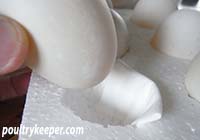
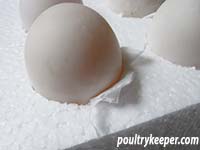
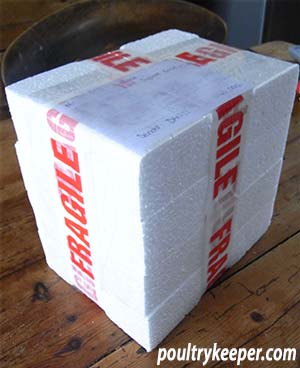
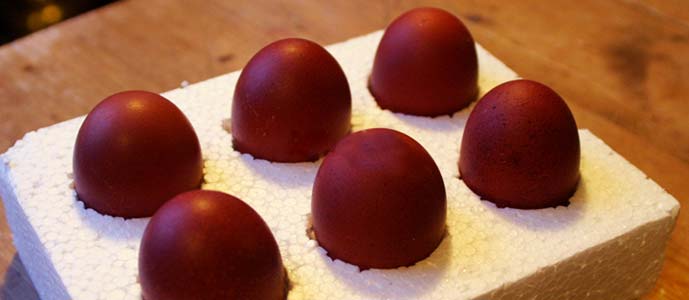
Where to sell hatching eggs
There are many different websites offering hatching eggs, but before you rush off to those…
Register with the breed club
My first port-of-call when buying is to find a well-known breeder via a breed club. Breeders registered with a club are usually trying to hatch many high-quality birds to better their own stock, and many of them show their birds, so they have a good reputation.
If you keep a pure breed, I encourage you to register with the breed club (usually no more than £10 per year). This will give you the breed standard to work to, and it will show you are a serious breeder, but often they have a directory for members or places to advertise on the breed club website.
Breed club contact details are listed on my individual breed profile pages, and links are coming up.
Website/Facebook page
Next, I would set up a website or Facebook page. It doesn’t need to be sophisticated but should contain many photos of your birds and details of how you raise them, and other useful information.
It might not be getting a lot of traffic, but for people finding you with an advert on another website, it’s a point of reference for people to look you up and learn more.
I can understand people not wanting to provide an address, but at least provide a mobile number so people can speak to you and ask questions.
Register with breed directories
Once you have a website, register with other websites. For example, John Harrisson’s Chickens-Allotment website keeps a directory of hatching egg suppliers by region in the UK. This should help you to get found.
Advertising: Pre-loved, Gumtree, eBay
Finally, advertising on websites like Pre-loved, Gumtree and auction sites such as eBay can help get you in front of buyers. Take care with your listing, spend some time providing good, descriptive information and provide as many high-quality photos of your birds as you can.
While you can’t always add a link to your website, you can watermark photos with your business name and mention your website has more photos in your listing so prospective buyers can search for it.
Tips for buyers
Before you start, make sure you know what you are looking for! Many people buy hatching eggs from people who are advertising birds with clear faults or aren’t true to type (which means they don’t look like the breed is supposed to look).
The breed standards aren’t cheap, although you will get a copy of an individual standard from a breed club. At least check my breeds pages to see whether the birds are true-to-type and review sellers feedback.
Most of my breed photos are from UK poultry shows over the last 10 years and show the best of breed winners, so they are a good indication of what a breed should look like.
A quick image search may also be useful to check that the photos being shown are the seller’s own photos.
When buying hatching eggs, there are several things to keep in mind.
- Eggs are remarkable. They can remain fertile for a couple of weeks if stored correctly. For the best results, though, make sure eggs are no more than a week old from being laid to going in the incubator.
- When eggs arrive, they will need to settle (pointed end down) before incubation for 8-12 hours in a cool place.
- Pre-heat your incubator at least 24 hours in advance and allow it to come up to the correct temperature and humidity for the species you are incubating.
- If eggs are cold, let them rise to room temperature for an hour before placing them into the incubator.
- Leave them for 7 days before candling. The embryo is most delicate during the first few days of incubation. Take particular care if you are turning eggs by hand in your incubator.
- Pure breeds can be difficult to hatch: Remember this when you buy eggs and don’t expect amazing results from small numbers of eggs. If you want chicks to fly out, then buy a cross-breed (Hybrid) or from a seller who has an unrelated cock but remember unrelated birds of the same breed will have more of a mixture of genes, and you may end up with a lot of variation in the offspring.
- Incubation isn’t difficult, so don’t be put off; however, there are huge differences in performance between different incubator models. I have tested many different incubators and have found that you get what you pay for, so don’t expect amazing results from cheap incubators…
Eggs arriving by post
There is a lot of talk on auction sites about sellers “not being responsible for circumstances beyond their control” in so far as the Post Office’s rough handling. This is to be expected. It is a gamble posting eggs!
If you are concerned about eggs going through the postal system, you would need to find a seller that will allow you to collect eggs. 1st Class Post aims to deliver the next working day, including Saturdays.
Whilst there is compensation available up to £20 for first-class postage, strangely, fertile eggs are classed as ‘live animals’, and it is rare to claim compensation. Therefore, you must accept the delay or loss of your eggs using this posting method or ask your buyer before the sale who is responsible for them if they do go missing.

